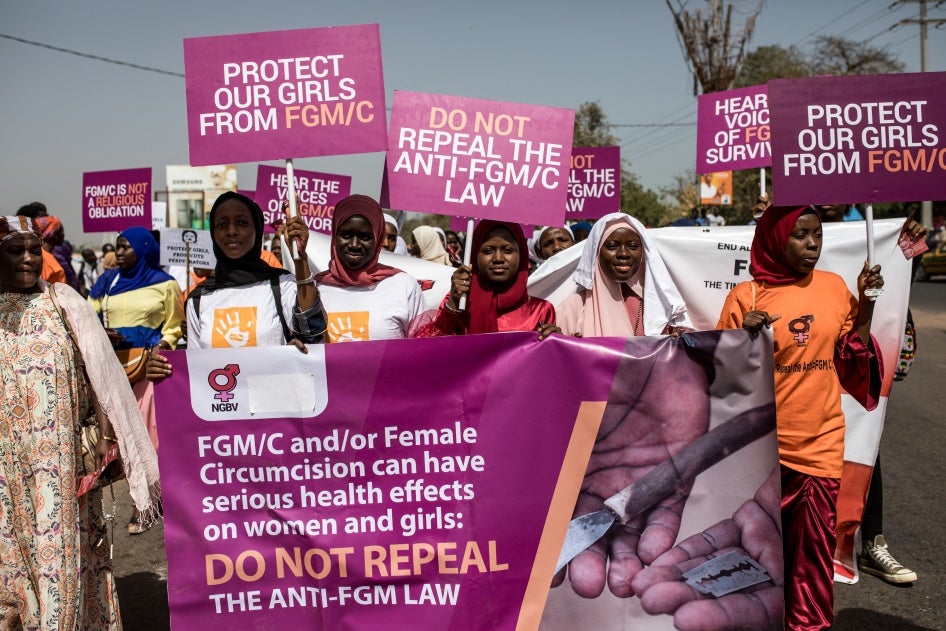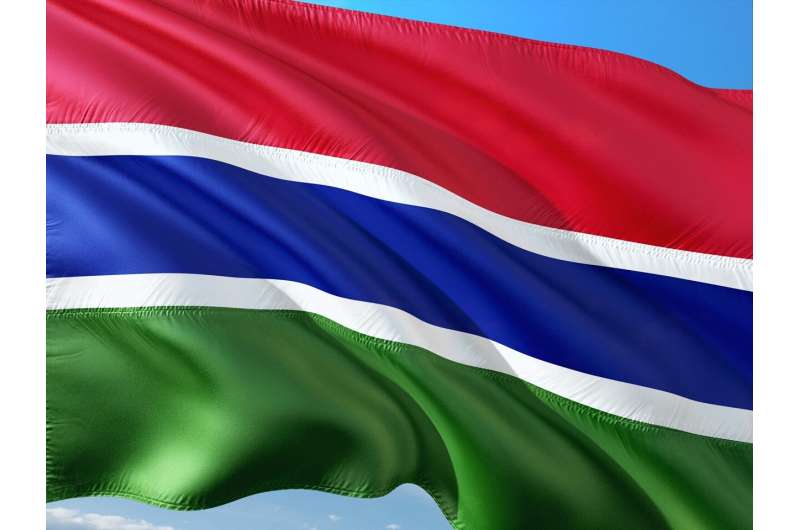PATRIRCHY IS FEMICIDE
Africa: Female Genital Mutilation Is On the Rise in Africa - Disturbing New Trends Are Driving Up the Numbers
ANALYSISBy Tamsin BradleyTHE CONVERSATION AFRICA (JOHANNESBURG)MAY 12, 2024Thirteen-year-old Salamatu Jalloh had her whole future to look forward to. But in January 2023, her lifeless body was found wrapped in a pink and blue shroud on an earthen floor in a village in north-west Sierra Leone.
Salamatu and two other girls bled to death after participating in a secret Bondo society initiation into womanhood. The ceremony, which lasts for several weeks, began with a sense of excitement and anticipation - a rare occasion in this rural community to celebrate girls. But at its core was a violent act: the cutting and removal of the girls' external genitalia.
Their tragic deaths were highlighted in the latest Unicef report on female genital mutilation. According to the UN agency 230 million girls and women alive today have survived female genital mutilation, but live with the devastating consequences.
Most procedures happen in African countries, accounting for 144 million cases.
Despite campaigns to end this practice there are 30 million more women and girls globally who have undergone this form of torture than eight years ago.
As an applied social anthropologist who has researched women and violence for many years I've been studying this form of abuse, and the reasons it persists, for over two decades. Some countries are making strides in reducing the practice. In others, advancements have stalled or even been reversed due to changing ideologies as well as the fallout from instability and conflict.
Unicef calculates the rate of decline would need to be 27 times faster to eliminate this abuse by 2030.
Understanding the trends is the starting point for ending female genital mutilation. Some of the new trends are alarming. They include a backlash by conservatives against efforts to stop female genital mutilation; increasing numbers of "secret procedures" which are difficult to keep track of; and shifts towards what are termed "less severe" forms. Increased "medicalisation" of the procedure by health care professionals is another disturbing trend.
Reasons given for FGM
The types of cutting vary. In its most severe form, infibulation, the cut edges of the labia are sewn together to achieve a smoothness considered to be beautiful. The vagina must be reopened for sexual intercourse or childbirth.
Every year, over half a million girls globally undergo this extreme form of vaginal mutilation.
Most of those who support female genital mutilation believe it maintains cleanliness, increases a girl's chances of marriage, protects her virginity and discourages "female promiscuity", thus preserving the family honour. They also believe it improves fertility and prevents stillbirths.Most supporters of the practice do so for religious or cultural reasons.
In fact female genital mutilation has no health benefits, and it harms girls and women in many ways. It carries the risk of immediate complications like shock, haemorrhage, tetanus, sepsis, urine retention, ulceration of the genital region and injury to adjacent genital tissue. Long-term consequences include increased risk of maternal morbidity, recurrent bladder and urinary tract infection, cysts, infertility and adverse psychological and sexual consequences.
FGM in African countries
Countries with the highest levels of female genital mutilation are Somalia (99%), Guinea (95%) and Djibouti (90%).
In Kenya, over the last half century a remarkable transformation has occurred. Female genital mutilation was once widespread, but most of the country has now abandoned the practice.
Yet among the Somali community, concentrated in the north-eastern province of Kenya, there has been little change, and the practice remains nearly universal.
Somalia and Sudan face the challenge of addressing widespread female genital mutilation amid conflict and population growth.
Ethiopia has consistently made progress, but climate shocks, disease and food insecurity make it harder to maintain these successes.
The fragility of progress cannot be overstated.
Conservative backlashes and compliant doctors
There are some alarming trends that make eliminating this practice even more difficult.
- Backlash by conservatives: In The Gambia religious leaders have demanded that legislators revoke a 2015 law banning female genital mutilation. They reacted after three women in the northern village of Bakadagi were found guilty of mutilating eight infant girls in 2023, the first major conviction under the law. The World Health Organization has warned that a repeal in The Gambia could encourage other countries to disregard their duty to protect these rights.
- Secret procedures: In countries where the practice is banned it has often gone underground. Girls are also being cut at a younger age to avoid detection. This makes accurate rates of female genital mutilation harder to capture.
- Shifts towards "less severe" forms: One of these is sunnah, the removal of the clitoris. In countries such as Sudan and Somalia this is considered by many to be unharmful as the vagina is not sewn up. Proponents argue that this does not count as female genital mutilation.
- "Medicalised" procedures, performed by trained people like doctors, nurses and midwives: Some people consider these legitimate as they are thought to be safer. More of these are being performed in public or private clinics, chemists, homes, or elsewhere.
- Destabilisation and eroded rights: Around 4 in 10 girls and women who have undergone female genital mutilation live in countries affected by conflict or fragility. Ethiopia, Nigeria and Sudan account for the largest numbers of girls and women who have undergone female genital mutilation in conflict-affected countries.
Armed conflict and the devastating impact of climate change have led to a sudden deepening of poverty and mass displacement, driving people from their land and livelihoods. Families are plunged into deep poverty and studies have shown that the rights of girls slip away when families are faced with stark choices.
The commodification of girls through marriage practices such as bride price means that when families are stripped of all other resources daughters become an object to be sold. Female genital mutilation, as a marker of a girl's purity, becomes essential.
Progress to eliminate this horrific form of abuse needs to be a lot faster. Understanding the shifting trends is a start.
Tamsin Bradley, Professor of International Development Studies, University of Portsmouth








